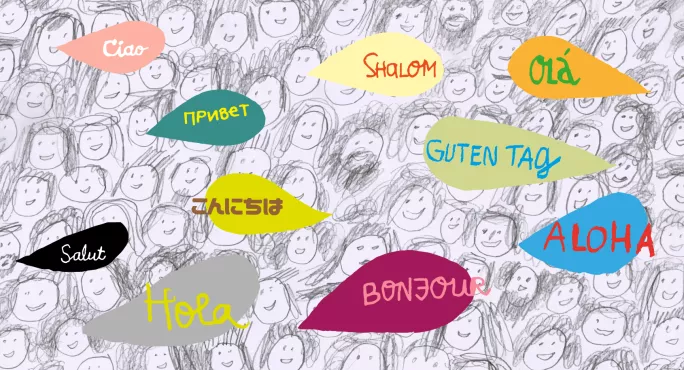
Could subject-specific professional learning revive languages in Scotland?

The teaching of languages in Scotland is at a critical juncture, with the recent inclusion of languages in the ŌĆ£curriculum improvement cycleŌĆØ (CIC) bringing both challenges and opportunities.
As we navigate curriculum reform and an updated , one thing is clear: high-quality subject-specific professional learning (SSPL) is crucial to equipping teachers with the clarity, confidence and agency they need to plan progressive lessons and engage learners effectively.
Too often, generic professional learning does little to help teachers apply new ideas to their subject areas. Language educators require SSPL tailored to their discipline, ensuring that they understand how broader educational developments have an impact on language learning and teaching. High-quality SSPL will enable teachers to adapt the updated technical framework to their classrooms while maintaining autonomy over their approaches.
Normalising subject-specific professional learning
has shown that SSPL fosters collaboration, encourages participation in teacher networks and promotes enquiry-led approaches. Organisations supporting language education must continue advocating for SSPL, ensuring that it becomes the norm.
This is not just about teacher development it is about enhancing learning through improved pedagogy and deeper professional insight.
The inclusion of languages in the CIC presents an opportunity to embed continuous improvement and evidence-based practice. To maximise this, teachers need professional learning that explicitly links curriculum priorities with the specifics of language learning. National and local initiatives have demonstrated how languages contribute to wider educational goals.
For example, a collaboration between SCILT - ScotlandŌĆÖs national centre for languages - and primary teachers in China and Scotland co-created lessons on climate change, allowing learners to explore a global issue through their target language. This interdisciplinary approach enhances linguistic skills while reinforcing critical thinking and global citizenship - two key aspirations of ScotlandŌĆÖs curriculum.
- Related: Multi-level language classes ŌĆśchallengingŌĆÖ for Scottish teachers
- News: Languages among subjects affected by changed SQA exam dates
- Context: Data shows decades-long retreat of languages from Scottish schools
ScotlandŌĆÖs leadership initiatives aim to develop the leadership and advocacy skills of educators at all levels. , led by SCILT and Education Scotland, develops these skills through a language lens. To ensure languagesŌĆÖ place in the curriculum, educators must be empowered to drive change and champion languages within their contexts, whether in a classroom, department, school or local authority.
While some subjects, including languages and Stem (science, technology, engineering and maths), benefit from national organisations coordinating SSPL, many rely on dedicated individuals to sustain professional learning networks. Subject associations such the Scottish Association of Language Teachers (SALT) and other grassroots networks play a vital role in sustaining collaboration and sharing expertise, yet their contributions are often unrecognised and unpaid.
If we value peer-led learning, we must advocate for dedicated time and resources for these leaders.
The benefits of collaboration
But how do we ensure grassroots networks are connected and supported rather than isolated? While teacher-led networks empower educators, they risk becoming inward looking if there is no external input. Strengthening connections across networks is essential for sustaining momentum and circulating fresh ideas.
Recent initiatives highlight the benefits of collaboration, such as bringing together Mandarin and Arabic teachers to share solutions. Expanding this model could strengthen language teaching across different sectors and contexts.
To sustain grassroots SSPL, we should consider establishing a formalised network for language leaders, offering structured professional learning on leading and sustaining professional communities. Furthermore, should we also create a nationally coordinated network connecting subject-specific network leads across all areas? This would foster community, support and cross-fertilisation of ideas - perhaps this could be a role for the new Centre of Teaching Excellence?
With the CIC and evolving technical framework, we must raise awareness of the transformational power of high-quality SSPL. By ensuring teachers understand how languages contribute to the curriculum and by supporting grassroots SSPL providers, we can drive meaningful improvements in language education.
Scotland has a strong tradition of innovation in language teaching. Now is the time to invest in the professional learning structures that will sustain this progress, recognising and rewarding those who lead the way.
By doing so, we will empower teachers and enrich the learning experiences of young people - equipping them with the linguistic and intercultural skills needed for an interconnected world.
Lynne Jones is professional development officer at SCILT, ScotlandŌĆÖs national centre for languages, and Fhiona Mackay is director of SCILT
You need a Tes subscription to read this article
Subscribe now to read this article and get other subscriber-only content:
- Unlimited access to all Tes magazine content
- Exclusive subscriber-only stories
- Award-winning email newsletters
- Unlimited access to all Tes magazine content
- Exclusive subscriber-only stories
- Award-winning email newsletters
You need a subscription to read this article
Subscribe now to read this article and get other subscriber-only content, including:
- Unlimited access to all Tes magazine content
- Exclusive subscriber-only stories
- Award-winning email newsletters
- Unlimited access to all Tes magazine content
- Exclusive subscriber-only stories
- Award-winning email newsletters
topics in this article



